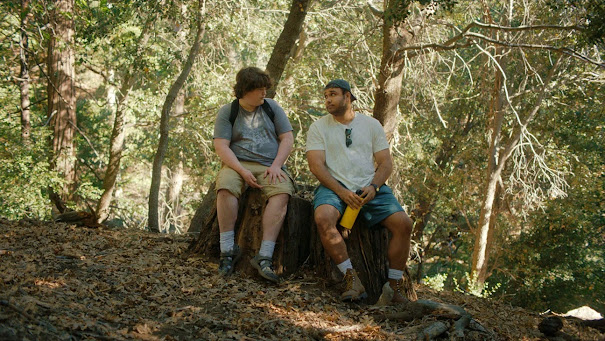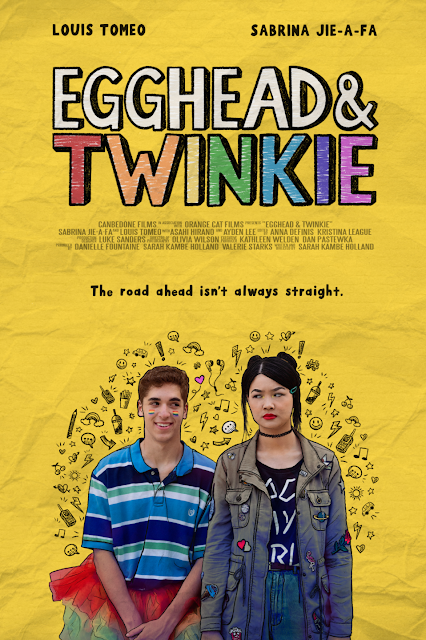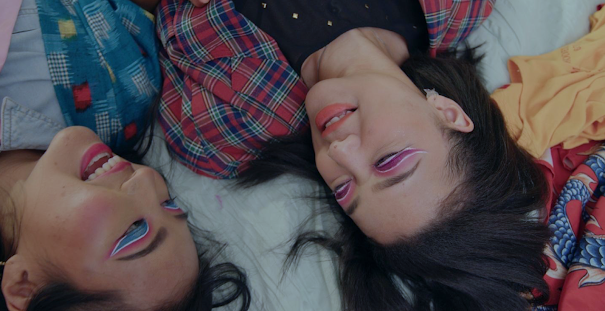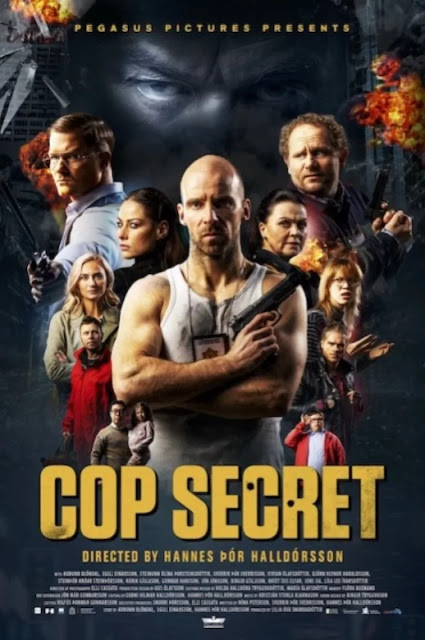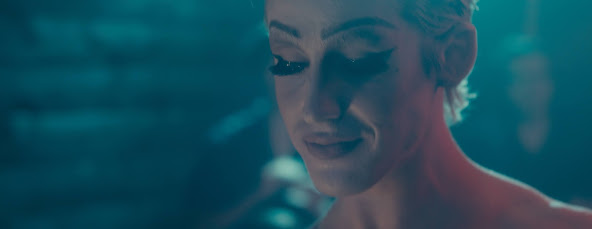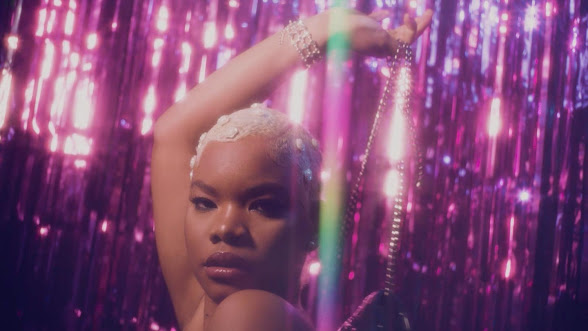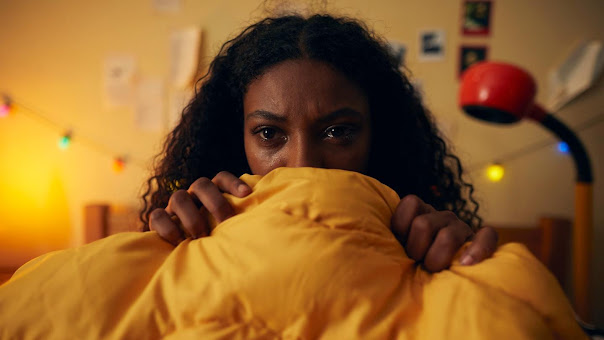For the benefit of UK readers, the big screen Big Boys has nothing to do with the identically named Channel 4 TV show from last year based on the life of writer Jack Rooke, despite them both sharing a queer rites of passage narrative. With their similarities not extending much further than that and skewing more much towards drama than comedy, writer/director Corey Sherman's Big Boys is instead a sweet coming of age story set over the course of a camping trip where 14 year old Jamie (Isaac Krasner) starts to understand more about his sexuality and how he's perceived by others. As a heavy-set kid obsessed with food and cooking for other people, he puts forward a friendly, jovial, dare I say it, "jolly" persona, despite his mind spinning with teenage angst and turmoil internally. He's polite and accommodating to a fault, even when pushed into awkward situations by obnoxious teenager Will (Taj Cross) who's joined them on their trip and dead set of using Jamie as a pawn in his pursuit of some local girls.
With his cousin Allie's (Dora Madison) boyfriend Dan (David Johnson III) also being a larger person, there's an instant unspoken bond between him and Jamie, with Allie pushing Dan forward as a positive male role model that may help Jamie overcome some of his confidence issues. What's not instantly clear is that as well as him idolising Dan for his more masculine traits, he's quickly developed a romantic crush on him too, with Jamie imagining through fantasy sequences how different things will be (might be/could be) for him when he's older. In the film's boldest move, these fantasies re-cast Jamie with grown-up actor Jack de Sanz, allowing Big Boys to deftly (and crucially, unproblematically) cross the boundary into the hazy, uncanny space where Jamie can process his feelings for Dan and imagine a possible future together.
In what could have easily been a crass, cringe inducing comedy of teenage awkwardness, writer/director Corey Sherman deserves praise for offering such a nuanced, warm account of teenage trials and tribulations. The film is never poking fun at Jamie when he does something to cause himself embarrassment, although there's undoubtedly moments that audiences may find relatable opportunities to laugh at their own stories and pasts, so universal is that feeling of unrequited love and social angst. Jamie may want to skip over his teenage years to be an adult, be seen as one of them and able to live his life as he wishes, but in truth he knows he's a long way away from that level of maturity, and that his crush is unlikely to lead to anything but heartache. We've all been there, right?
With his character being in almost every frame of the film, Isaac Krasner offers a truly relatable, compassionate performance as Jamie. For such a young actor, he nails the moments where nothing needs to be said in anything but a look, providing his character with a real depth that speaks volumes. Likewise, David Johnson III as Dan, ably walks that treacherous line of being caring and thoughtful towards the limpet-like Jamie, fully aware and accepting of his hero status in Jamie's eyes, but without understanding everything that's going on in his mind. However, it's when he's finally given a better understanding of Jamie's motivations that we get to see the full extent of Dan's positive character traits and Johnson's capability in the role.
Asking relevant questions about modern masculinity and teenage heartache through a queer lens, Big Boys is an occasionally painful but wholly relatable delight that's like being wrapped up in the warm hug of a sleeping bag after a long day camping.
Verdict
4/5
Big Boys screened as part of this year's BFI Flare Film Festival. More information about the festival can be found here.


